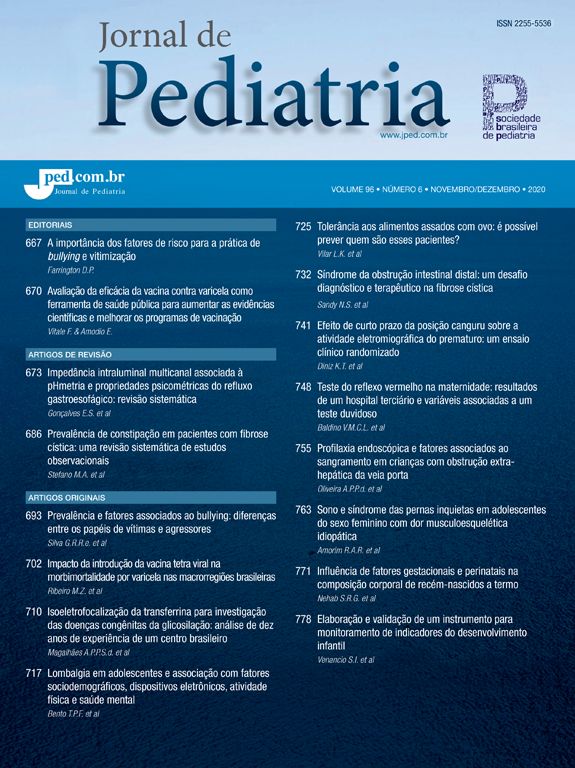To assess the implementation of the WHO/UNICEF Breastfeeding Counselling Course and its impact on the knowledge and skills of health providers. Methodology: The implementation of the course was assessed by participant observation. Its impact on participants was assessed with an experimental controlled study where 20 health workers were randomly allocated as course participants (Exposed Group: EG) and 40 as non-participants (Control Group: CG). We verified impact on knowledge with multiple choice questions for pre- and post-evaluations. We assessed clinical and counselling skills through pre- and post-tests, observing participants in clinical consultation with mother and baby pairs in rooming-in before and after the course. We analyzed the results with the Kruskal-Wallis test of variance of means. Results: The EG mean was 8.35, and the CG mean was 5.54 (P=0.0000) in the post-evaluation of knowledge. In clinical and counselling skills, the EG means were higher than the CG means in all items observed (P<0.05). We identified some difficulties in breastfeeding history and in breastfeeding observation. Counselling skills were the best incorporated aspects. Conclusion: The course may be implemented as proposed. Participants acquired counselling skills, but clinical management should be reinforced. Participants shoud be under continued supervision to ensure they put what they have learned into practice.
MethodologyThe implementation of the course was assessed by participant observation. Its impact on participants was assessed with an experimental controlled study where 20 health workers were randomly allocated as course participants (Exposed Group: EG) and 40 as non-participants (Control Group: CG). We verified impact on knowledge with multiple choice questions for pre- and post-evaluations. We assessed clinical and counselling skills through pre- and post-tests, observing participants in clinical consultation with mother and baby pairs in rooming-in before and after the course. We analyzed the results with the Kruskal-Wallis test of variance of means. Results: The EG mean was 8.35, and the CG mean was 5.54 (P=0.0000) in the post-evaluation of knowledge. In clinical and counselling skills, the EG means were higher than the CG means in all items observed (P<0.05). We identified some difficulties in breastfeeding history and in breastfeeding observation. Counselling skills were the best incorporated aspects. Conclusion: The course may be implemented as proposed. Participants acquired counselling skills, but clinical management should be reinforced. Participants shoud be under continued supervision to ensure they put what they have learned into practice.
ResultsThe EG mean was 8.35, and the CG mean was 5.54 (P=0.0000) in the post-evaluation of knowledge. In clinical and counselling skills, the EG means were higher than the CG means in all items observed (P<0.05). We identified some difficulties in breastfeeding history and in breastfeeding observation. Counselling skills were the best incorporated aspects. Conclusion: The course may be implemented as proposed. Participants acquired counselling skills, but clinical management should be reinforced. Participants shoud be under continued supervision to ensure they put what they have learned into practice.
ConclusionThe course may be implemented as proposed. Participants acquired counselling skills, but clinical management should be reinforced. Participants shoud be under continued supervision to ensure they put what they have learned into practice.
Avaliar a implementação do Curso de Aconselhamento em Amamentação OMS/UNICEF e seu impacto na aquisição de conhecimentos, habilidades no manejo clínico e aconselhamento em amamentação.
MetodologiaO processo de implementação do curso foi avaliado através de observação participante; seu impacto foi avaliado por estudo experimental controlado, no qual 20 profissionais de saúde foram alocados aleatoriamente no grupo exposto (GE), e 40 no grupo controle (GC). Para verificar mudanças nos conhecimentos, foram aplicadas provas antes e após o curso contendo testes de múltipla escolha; para verificar mudanças nas habilidades clínicas e de aconselhamento, os profissionais foram observados em consultas com mães em alojamento conjunto, antes e após o curso. Na análise, utilizou-se o teste de diferença de médias de Kruskal-Wallis.
ResultadosNa avaliação de conhecimentos após o curso, a média de acertos do grupo exposto foi 8,35 e do grupo controle 5,54 (p=0,0000). Quanto às habilidades clínicas e de aconselhamento, as médias do grupo exposto foram superiores às do grupo controle em todos os itens avaliados (p<0,05). As maiores dificuldades encontradas foram a incorporação de habilidades de como fazer a história da amamentação e avaliação do posicionamento e pega durante a amamentação, sendo os itens mais facilmente incorporados os relacionados às habilidades de aconselhamento.
ConclusõesO curso pode ser implementado como proposto; os participantes adquirem habilidades de aconselhamento, mas há que reforçar as de manejo clínico da lactação; a necessidade de supervisão continuada foi identificada, para que os participantes passem a utilizar o aprendizado na sua prática.








